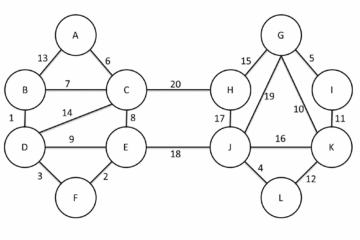A post over at ReadWriteWeb describes what the author calls a Personal API. The description of the API in the post something similar to what Google has put on it’s Nexus 4, a bit of software that learns where you are, your relationships, your likes/dislikes, mashes them together and learns how you want to communicate with different people and where you want to go. While the concept is interesting, perhaps it is a different way of describing something that has already underway, except the lovely API has been replace by a piece of hardware plagued by advertising, the battle has been lost for this one.
However, new ways to describe something are always good, and a post by Sheila McNeill takes the idea and thinks about researchers. The general idea is more abstract but goes something like this: I’m a researcher who does lots of things, different people want to know different bits about my work and ignore other bits. For example a funder might simply want to know ‘where has the money gone’ without reading the full set of published papers, while somebody else might just want datasets. The post not about creating anything, but about how the mindset of a researcher is the key thing. In Sheila’s own words
‘The key thing therefore is for the researcher to think of themselves more as the interface between their work, the data, the findings, the “what actually happened in the classroom” bits and focus on ways to allow as wide a range of stakeholders to easily “hook” into them so they can use the outputs meaningfully in their own context.‘
As a way of thinking I think thats powerful, but I’d like to apply that to my current line of work in R. Does a researcher really know what they are about? Scratch that. Does anybody really know what they are about, we know what we think we are doing. I can do competency X or Y. Can I get a deeper look at myself and can I have an API for that? Google knows everything I search for, Facebook knows who I know, Twitter knows who I shamelessly flog my posts too. But it goes deeper than that. I post a comment on the video, what was the video about? What was the relationship between the content of the video and my comment? What is the significance of me reading this Reddit post on that day? Why did I subscribe to this RSS feed then and not now? I think these things know more about us than we know. And asking the footprint we leave online (our personal corpus), ‘Where did the money go’ might give a stronger answer than we could even answer for ourselves.
Recently I’ve been writing scripts to pull data out of these things to find patterns. I think of myself as a software developer, but my Google search history thinks of me as an Historian, but that was only for last week when I was researching the history of Syria and Turkey, the week before I was a statistician and gamer (getting into Topic Modelling and playing TLOU I guess). Using Topic Models my script tells me the chance that I was doing, interacting or thinking about certain things at a certain time. But I’m sure there’s more to it than that. This stuff feels so powerful, I really want to tackle it and the API just feels so familiar and a good way to think about it. So after all that I guess this is similar to the RWW post, except I don’t want an API to organise me. I want to learn about myself.
So as a researcher if somebody comes to me and asks what influences me, where has the money gone or what impact has my research had; I’d have to say, “hang on while I ask my Personal Corpus, I have an API for that”.
Now if only I could capture my offline experience.
David has won the game through The Ascent to Transcendence Wonder.



1 Comment
3D worlds on the web using the Oculus Rift: attempt 1 | David Sherlock · October 10, 2013 at 1:28 pm
[…] my Rift I’ve had a go at creating a virtual world that imports data (just text at this point) from my personal corpus/personal api and displaying them in a room. I wanted people to be able to go other and explore the text and […]